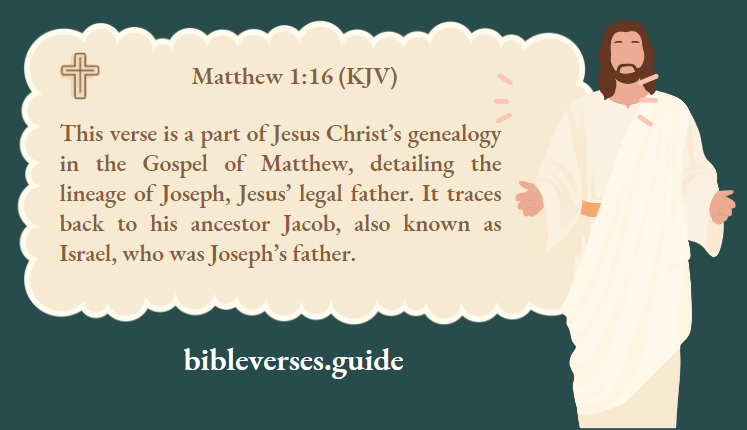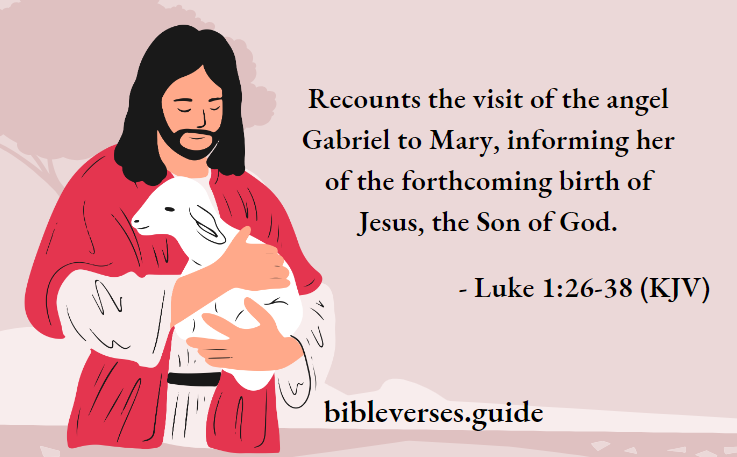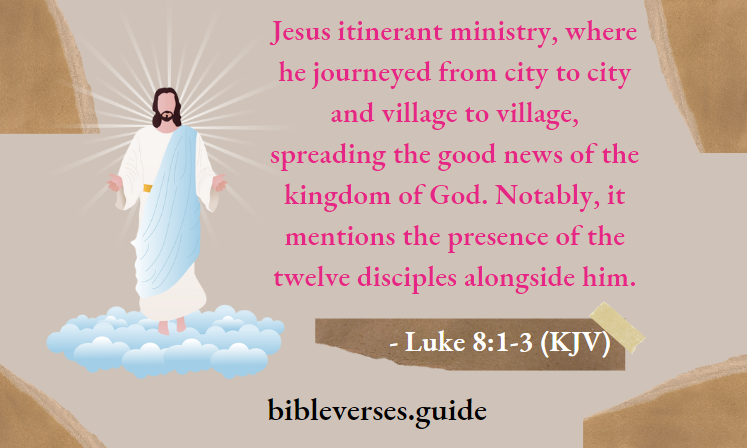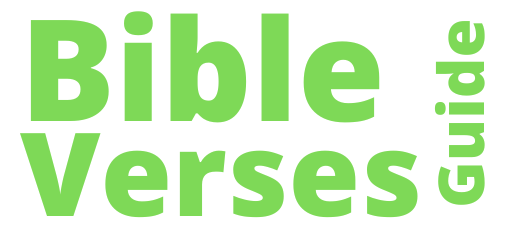“And Jacob begat Joseph, the husband of Mary, of whom was born Jesus, who is called Christ.”
Matthew 1:16 (KJV)

What sets this verse apart is the mention of Mary, Jesus’ mother. It highlights Joseph as Mary’s husband, underlining her significance in Jesus’ birth. The phrase “of whom was born Jesus” emphasizes Mary as the mother through whom Jesus came into the world.
“Joseph The Husband Of Mary”
Read and Learn More Empowering Bible Verses For Women
This verse is important as it recognizes Mary’s pivotal role in Jesus’ birth while acknowledging Joseph as his legal father. It underscores Jesus’ human lineage through Joseph. It acknowledges his miraculous conception by the Holy Spirit, as mentioned in earlier verses of Matthew. It establishes Jesus’ identity and lineage within Jewish tradition and prophecy.
Points To Ponder:
Recognition of Matrilineal Lineage: The verse honors Mary as Jesus’ mother, underscoring her significance in Christ’s genealogy. This acknowledgment of Mary’s maternal line showcases the value of our historical contributions and lineage.
Inclusion In The Narrative: By including Mary in Jesus’ genealogy, the verse integrates her into the story of salvation history. This integration confirms our presence in the redemption narrative and emphasizes our worth and importance in God’s grand plan.
Affirmation Of Motherhood: The verse validates Mary’s motherhood, acknowledging her crucial role in bringing Jesus into the world. This validation of motherhood highlights the significance of our nurturing and caregiving roles in society.
Connection to Divine Purpose: Through Mary’s presence in Jesus’ genealogy, the verse links her to God’s divine purpose and plan for salvation. This connection reminds us that we are part of God’s redemptive mission on earth and that our lives hold meaning and purpose in His eyes.
“Of Whom Was Born Jesus”
Celebration of Women’s Role: Lastly, by referencing Mary in Jesus’ genealogy, the verse honors women’s vital role in God’s salvation plan. This celebration affirms our value and worth in God’s sight and recalls the dignity and respect inherent in our identities as God’s daughters.
Matthew 1:16 acknowledges Mary’s place in Jesus Christ’s lineage and affirms the importance of women in God’s salvation plan. It serves as a reminder of our significance and value in God’s eyes, celebrating women’s pivotal role in His redemptive work in the world.
“26 And in the sixth month the angel Gabriel was sent from God unto a city of Galilee, named Nazareth,
27 To a virgin espoused to a man whose name was Joseph, of the house of David; and the virgin’s name was Mary.
28 And the angel came in unto her, and said, Hail, thou that art highly favored, the Lord is with thee: blessed art thou among women.
29 And when she saw him, she was troubled at his saying, and cast in her mind what manner of salutation this should be.
30 And the angel said unto her, Fear not, Mary: for thou hast found favor with God.
31 And, behold, thou shalt conceive in thy womb, and bring forth a son, and shalt call his name JESUS.
Genealogy Of Jesus In Matthew 1:16
32 He shall be great, and shall be called the Son of the Highest: and the Lord God shall give unto him the throne of his father David:
33 And he shall reign over the house of Jacob forever; and of his kingdom, there shall be no end.
34 Then said Mary unto the angel, How shall this be, seeing I know not a man?
35 And the angel answered and said unto her, The Holy Ghost shall come upon thee, and the power of the Highest shall overshadow thee: therefore also that holy thing which shall be born of thee shall be called the Son of God.
36 And, behold, thy cousin Elisabeth, she hath also conceived a son in her old age: and this is the sixth month with her, who was called barren.
37 For with God nothing shall be impossible. 38 And Mary said, Behold the handmaid of the Lord; be it unto me according to thy word. And the angel departed from her.”
Luke 1:26-38 (KJV)

Here Is A Breakdown Of The Passage:
Context (Verses 26-27): The passage starts by setting the stage, mentioning that the angel Gabriel was sent by God to Nazareth, a city in Galilee. He visits Mary, a virgin engaged to Joseph, a descendant of David.
Gabriel’s Greeting (Verses 28-30): Gabriel greets Mary with the words, “Hail, thou that art highly favored, the Lord is with thee: blessed art thou among women.” Mary is troubled and questions the greeting’s meaning. Gabriel comforts her, advising her not to fear and assuring her of God’s favor.
Announcement Of Jesus’ Birth (Verses 31-33): Gabriel informs Mary that she will conceive and bear a son named Jesus. He will be extraordinary, known as the Son of the Most High, ruling over Jacob’s descendants forever with an eternal kingdom.
Mary’s Question (Verse 34): Mary asks Gabriel how this will happen since she is a virgin and has not been with a man.
Gabriel’s Explanation (Verses 35-37): Gabriel explains that the Holy Spirit will come upon her, and the power of the Most High will overshadow her. The child she conceives will be holy, called the Son of God. Gabriel also shares about Elizabeth, Mary’s relative, who is with a child in her old age, emphasizing that nothing is impossible for God.
Mary’s Response (Verse 38): Mary accepts God’s plan with humility and obedience, saying, “Behold the handmaid of the Lord; be it unto me according to thy word.” Following this, the angel leaves her.
Matthew 1:16 King James Version
This passage is pivotal as it signifies the announcement of the Incarnation, where the Word became flesh and lived among us. Despite the apparent impossibility, Mary’s acceptance of God’s will highlights her essential role in the divine plan. Her faith and obedience serve as a model for believers, showcasing trust in God’s promises and readiness to submit to His will.
Points To Ponder:
Courage And Faith: Mary’s encounter with the angel Gabriel showcases her courage and unwavering faith. Despite initial confusion, when informed that she would bear a son, Mary responded with steadfast faith, saying, “Behold the handmaid of the Lord; be it unto me according to thy word” (Luke 1:38).
Her response encourages us to trust in God’s plan, even when faced with uncertainty or fear.
Agency And Consent: Mary’s reaction to the angel’s message illustrates her autonomy and ability to give consent. Despite the profound announcement from a celestial being, Mary retained her agency.
Saying, “Be it unto me according to thy word,” she willingly embraced God’s plan. This portrayal of Mary’s agency inspires us to assert ourselves and make choices in line with our beliefs.
Role In Salvation History: Mary’s acceptance of the angel’s message signifies her crucial role in God’s redemptive plan. As Jesus’ mother, she is pivotal in bringing the Savior into the world. Recognizing Mary’s significance reminds us of our potential to participate in God’s work of redemption.
Divine Favor and Blessing: The angel’s greeting to Mary, “Hail, thou that art highly favored, the Lord is with thee: blessed art thou among women” (Luke 1:28), bestows divine favor and blessing upon her. This declaration underscores our inherent worth and value in God’s eyes, affirming His grace and favor towards us.
An Exemplar Of Faith And Obedience: Mary’s response to the angel Gabriel sets a profound example of faith and obedience. Her submission to God’s will and trust in His plan encourages us to follow suit. Mary’s faith empowers us to step out in trust, knowing God fulfills His promises and remains steadfast.
“1 And it came to pass afterward, that he went throughout every city and village, preaching and shewing the glad tidings of the kingdom of God: and the twelve were with him,
2 And certain women, which had been healed of evil spirits and infirmities, Mary called Magdalene, out of whom went seven devils,
3 And Joanna the wife of Chuza Herod’s steward, and Susanna, and many others, which ministered unto him of their substance.”
Luke 8:1-3 (KJV)

What distinguishes this passage is the mention of specific women who accompanied Jesus and contributed to his ministry, including:
Mary Magdalene: A woman healed by Jesus from seven demons, showcasing the transformative impact of Jesus’ healing power in her life.
Joanna: The wife of Herod’s steward, Chuza, demonstrating her dedication to Jesus’ ministry despite her husband’s association with Herod.
Susanna: Another supporter of Jesus’ ministry, though limited information is available about her in this text.
These women, among others, are noted for ministering to Jesus from their resources, indicating their financial support and care for his needs. This underscores their active participation in Jesus’ work and their significant role in supporting him.
The passage is noteworthy for challenging traditional gender norms and societal expectations, emphasizing women’s vital contributions to Jesus’ ministry. It portrays Jesus’ inclusivity and acceptance of women as followers and benefactors, affirming their worth and importance in his kingdom.
Biblical Lineage Of Christ
Points To Ponder:
Inclusion And Recognition: Reading about the women who accompanied Jesus and his disciples, we sense a feeling of inclusion and acknowledgment. These women were not mere bystanders but active participants in Jesus’ ministry.
Their presence alongside the disciples illustrates their vital role in sharing the Gospel and ministering to others. This inclusion inspires us and affirms our significance and contributions to God’s work.
Healing And Restoration: The text notes that some of these women had been healed from evil spirits and illnesses, emphasizing the transformative impact of Jesus’ ministry in their lives. Their experiences of healing and restoration remind us that Jesus offers hope, healing, and wholeness, regardless of our past challenges or situations.
Financial Support: The passage mentions that these women supported Jesus and his disciples from their own resources. This showcases their generosity and willingness to financially back Jesus’ ministry. Their donations highlight our capacity to make meaningful contributions to God’s work and support His kingdom through our resources and talents.
Leadership And Influence: These women displayed leadership and influence through their travels with Jesus and ministering alongside his disciples. Their willingness to step out in faith and serve alongside male disciples challenges traditional gender norms. Their example urges us to embrace our leadership abilities and use our influence to further God’s kingdom.
Equality And Partnership: Jesus allowing these women to accompany him and his disciples, despite societal norms, underscores the equality and partnership within God’s kingdom. In Jesus’ ministry, there is no distinction between genders; all are called to serve and participate in spreading the Gospel.
This acknowledgment of equality affirms our dignity, worth, and potential in God’s sight.
In summary, Luke 8:1-3 acknowledges our inclusion, value, and contributions to Jesus’ ministry. It reminds us of our active role in spreading the Gospel, serving others, and supporting God’s kingdom. As women, we are empowered to embrace our gifts, serve boldly, and lead confidently, knowing we are valued and cherished by our Savior.
